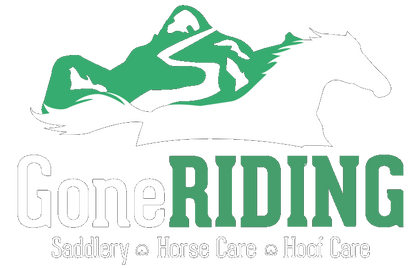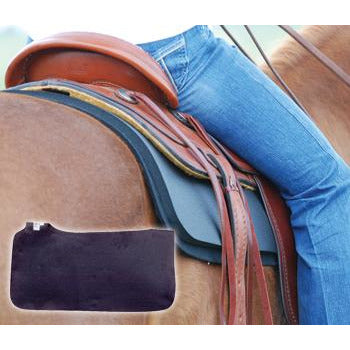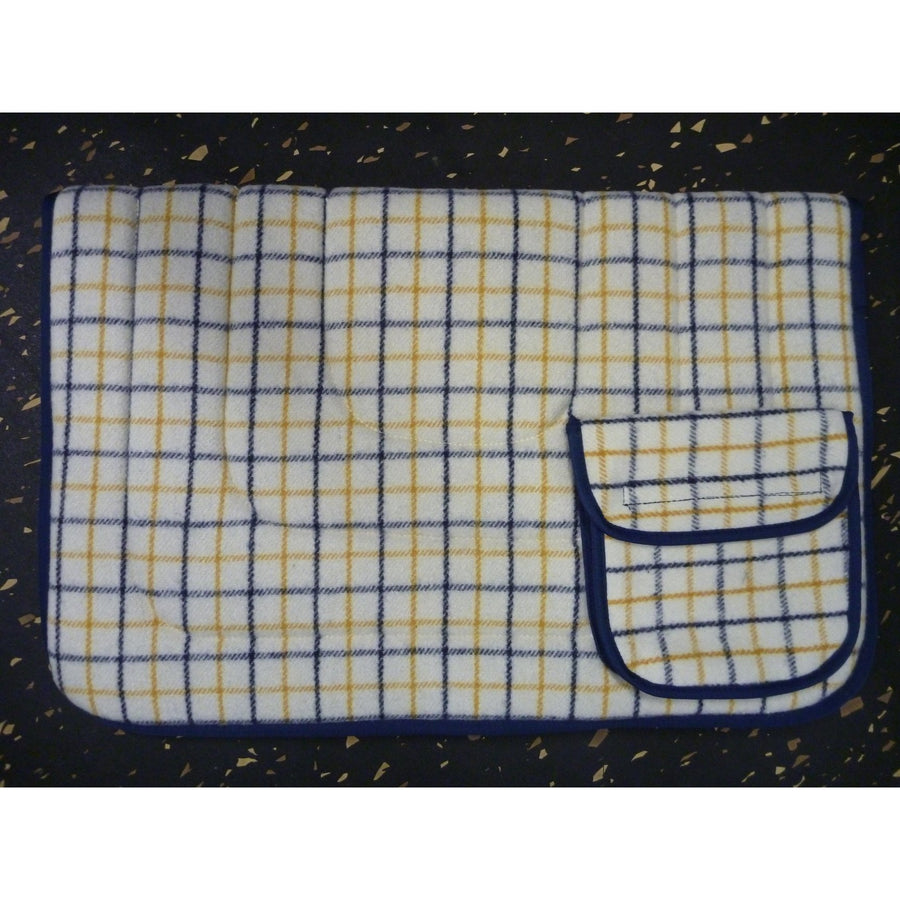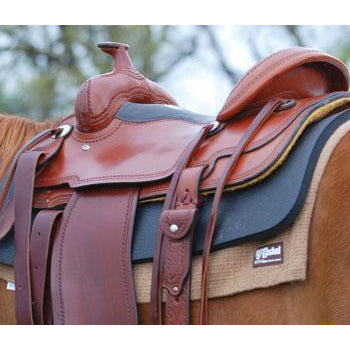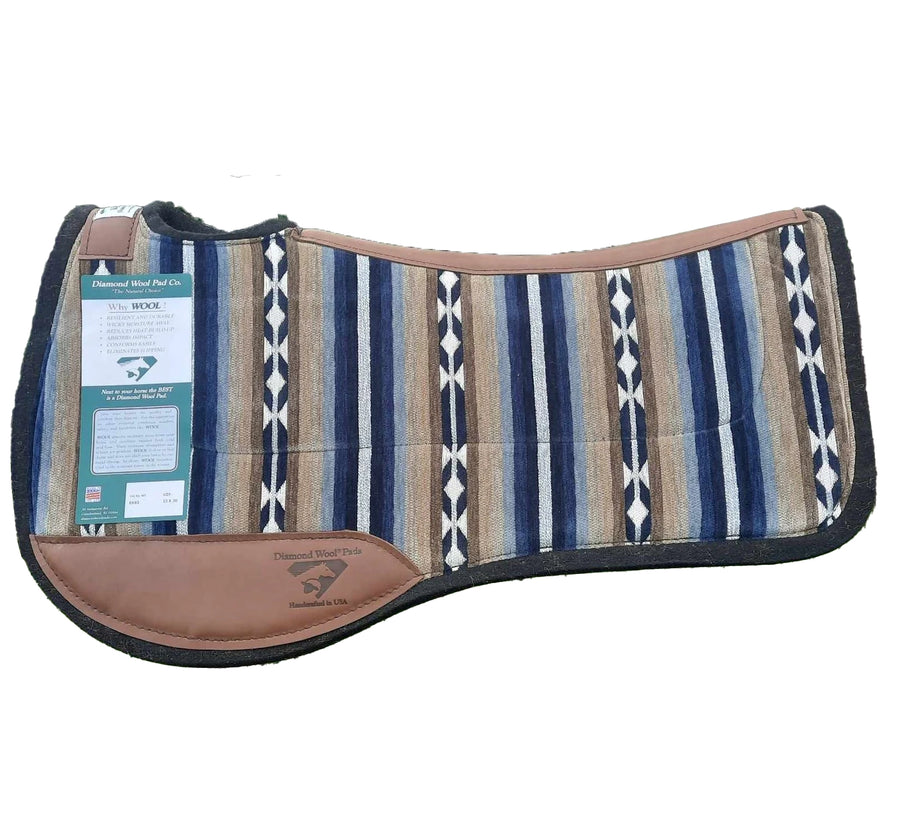These Endurance Contoured Ranch Pads are made from Diamond Wool Ranch tough 1" Wool felt covered with a durable cotton canvas top and distressed leathers.
Please note: This is a bulky item and may have an additional freight cost applied at the checkout. Not available for express postage.
Endurance SQUARE pads are cut to fit endurance saddles, Western with round skirts and most Half Breed saddles. The contoured spine has a wither relief notch and is reinforced with distressed leather.
Click here to go to the 1/2 inch thick pad - ER84
The Endurance Square shape has a 16 ½ inch drop making the overall width 33 inches, the seat drops 13 inches, and the spine of the pad from front to back is 30 inches long.
The Diamond Wool Pad Co. manufactures the finest selection of "Wool Felt" saddle pads. They offer a wide range of Western pads for all disciplines. Diamond Wool pads are hand crafted using high quality materials at their facility in Rhode Island USA where the textile industry still exists.
Caring for Your Wool
The purpose of a saddle pad is to make a saddle more comfortable for the horse. It will help to eliminate friction between the saddle and the horse's back. It will also provide cushioning for the horse and rider. Wool felt saddle pads help to relieve pressure points and disperse the weight of the saddle and rider evenly. They also reduce slippage due to sweat. There are several pads on the market today and only Wool felt has stood the test of time. To keep your pad lasting even longer, please use the care instruction below to clean your pad often.
Care and Advice
Our saddle pads have a high percentage of wool content. To avoid shrinkage, do not use hot water to clean or heat to dry. Occasionally brush your pad with a curry brush. This will dislodge hair, dirt and sweat to prolong the usefulness of your pad. Place your pad in a well ventilated area for efficient drying.
To Clean Pads:
1.Use a soft cloth/sponge, a mild shampoo or detergent free soap (such as Woolite), and tepid water.
2.Slightly dampen the cloth or sponge and add a small amount of soap.
3.Work up a small lather on soiled areas.
4.Rinse with clean water.
5.Allow to air dry
We do not recommend machine washing any of our saddle pads.
The Importance of Wool
No other material combines comfort, safety, care, and durability like wool. While synthetics only trap moisture between the fibres, wool absorbs moisture away from your horse and insulates against both cold and heat. Since moisture absorption and release are gradual, wool is slow to feel damp and does not chill your horse by too rapid drying. In short, wool breathes. Wool is an amazingly strong fibre composed of protein that grows with a crimped wavy form, giving wool excellent properties of elasticity and resilience. This unique structure enables it to mesh with the hair on your horse's back, which prevents the shifting of your pad while riding. This resilient fibre is long wearing and has the ability to retain shape, drape well, and resist wrinkling due to its natural elasticity. Wool cleans easily and will not soil or stain like synthetics because the unequalled structure withstands dirt penetration. The felting process increases the strength, durability and shock absorbency of wool felt. This process also allows your pad to conform to the shape of your horse's back to provide soft cushiony protection, for both horse and rider in the years to come.
Structure of Wool
The structure of a wool fibre contains many distinctive properties. The bulk of the fibre consists of spindle-shaped cells running lengthwise and these are surrounded by a layer of scale like overlapping cells. The entire fibre is sheathed in a thin membrane impervious to liquid but with tiny pores through which vapour can pass and be absorbed by the fibre. This absorbency enhances wool's natural resilience.

